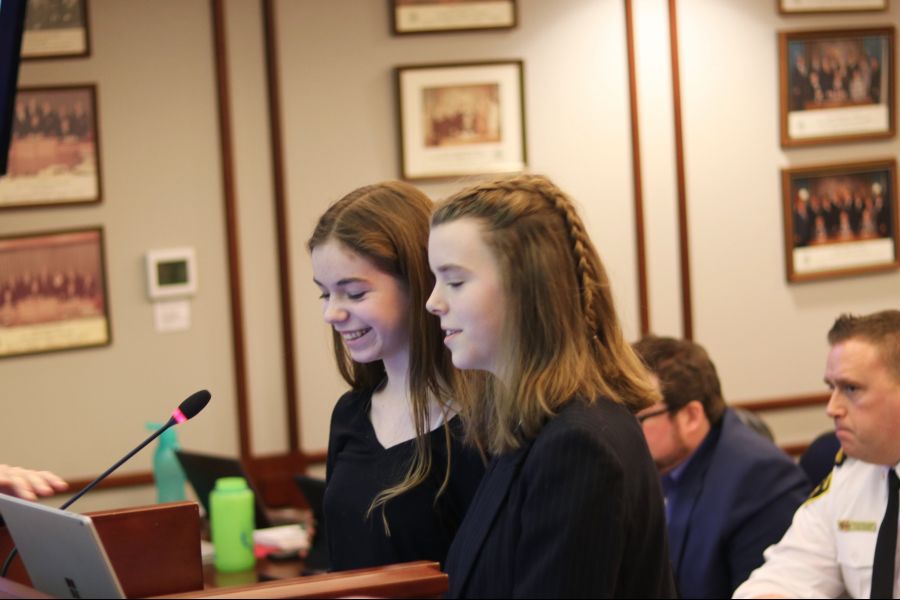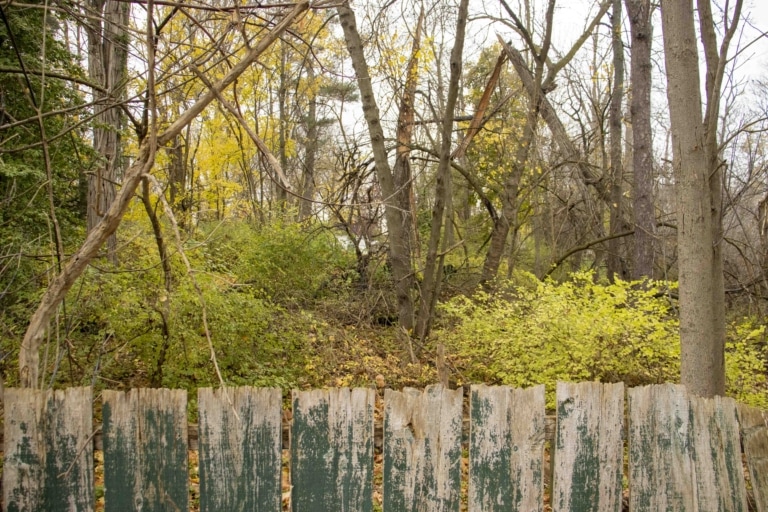In a close vote, Niagara-on-the-Lake councillors have approved declaring a climate emergency in town.
Young climate activists Hazel Norris and Molly Shara addressed council Monday night urging the town to make the decision.
Following in the footsteps of many other municipalities across Canada, making the declaration will be a start of a more eco-friendly future and will change the way people think about their daily lives, the two St. Michael Catholic Elementary School students explained.
“Unless we all put in some effort, no progress will be made,” Norris said.
The girls, who have been vocal about climate issues, held two monthly strikes in front of the town hall last fall and formed their own Climate Action Committee this January.
“Yes, political changes are needed. However, people are more inclined to commit to something when it puts themselves and their loved ones at risk,” Shara told councillors. “Climate change is exactly that.”
Declaring an emergency will help lay the groundwork for improving the transit system (one of the action committee’s ideas to reduce the town’s carbon footprint) and banning single-use plastics, they said.
Currently, NOTL transit runs on the hour with four inbound stops and five outbound stops starting too late and ending too early in the day, they said, adding the system is “far from convenient” for seniors without cars, youth who can’t drive and low-income workers.
“How hard is it to bring your cup to a café, sip your drink without a straw and buy a reusable grocery bag?” Shara said. “To us, it’s absurd that so many places have not banned single-plastics use yet.”
Coun. Norm Arsenault brought forward a motion to declare a climate emergency and form a town environmental advisory committee consisting of Coun. Gary Burroughs, Arsenault and seven other community residents.
The committee will act as “a voice” and advise on sustainability, Arsenault said.
The committee will be tasked with providing recommendations on how to reduce the town’s carbon footprint. Some of the proposed options were to implement new technologies and replace existing municipal fleets and transit with zero-emission vehicles.
Some councillors questioned how the decision would affect town operations of pumper trucks, water pumps or phragmite-removal machines that could be running on diesel.
Coun. Erwin Wiens said he commended Arsenault for bringing the cause to the forefront, but said there are more pressing issues the town is facing. An “emergency” requires “immediate responses,” he said.
“I love the idea of what he’s doing … but we have an infrastructure here of sewers that need to be fixed.”
Coun. Clare Cameron shared the same sentiment, saying the word “emergency” implies some urgent and immediate actions are required.
She questioned how the town will balance the climate decision with other pressing issues like phragmites or when town’s fire pumper trucks and equipment are running on diesel.
“How do we reconcile the trade-off between multiple things that we’re potentially calling emergencies?”
Arsenault agreed with Cameron but explained that making a declaration is rather symbolic at this point and the town isn’t going to stop using equipment that runs on diesel.
“The intent is to start somewhere. You need to start looking at what is doable,” he said. “The intent is not to say you’re going to stop using fuel totally. That’s not realistic. The intent is to start somewhere, start reducing footprint and work towards an achievable goal.”
In two separate votes, councillors first unanimously approved forming a committee and then narrowly voted to declare a climate emergency with four councillors – Stuart McCormack, Erwin Wiens, Wendy Cheropita and Clare Cameron – voting against the idea.











